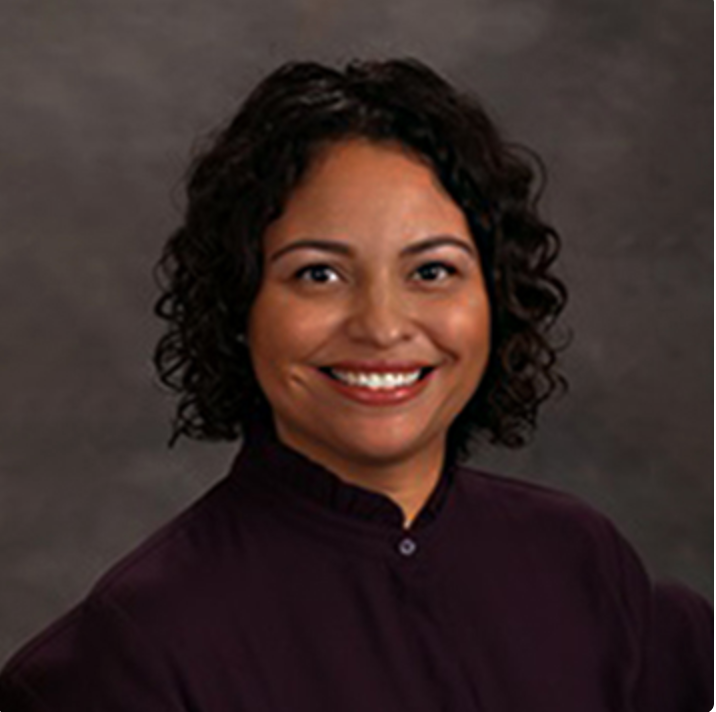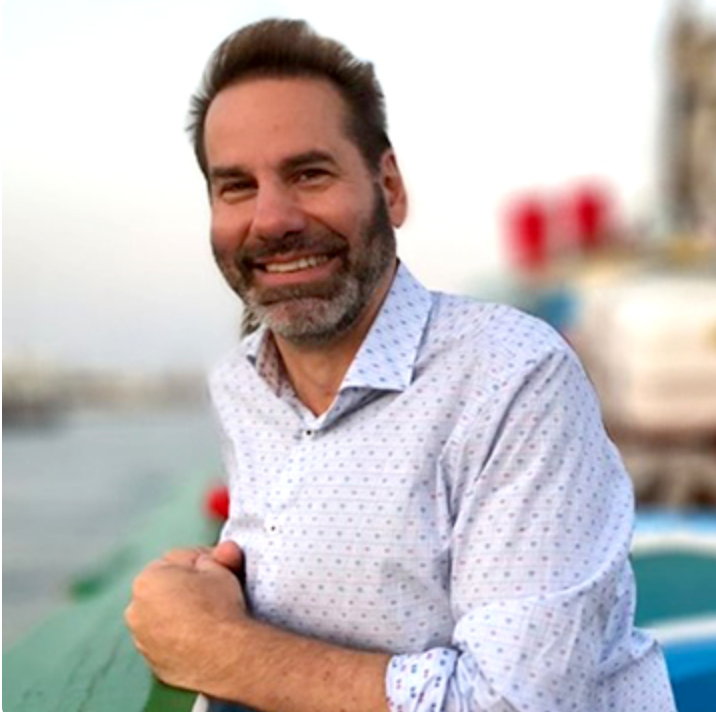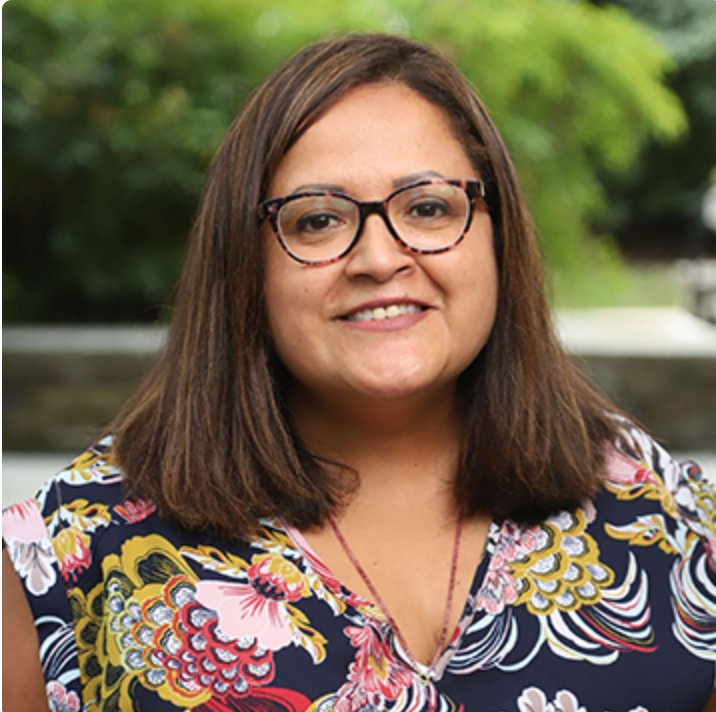- Home
- Events
- Morton Schapiro Distinguished Secondary School Teacher Award
- Northwestern Schapiro Award Recipients
Northwestern Schapiro Award Recipients
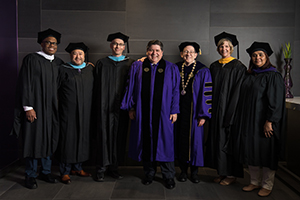
Above: Winners of the 2023 Morton Schapiro Distinguished Secondary School Teacher Award with President Schill, and Commencement Speaker Governor J.B. Pritzker
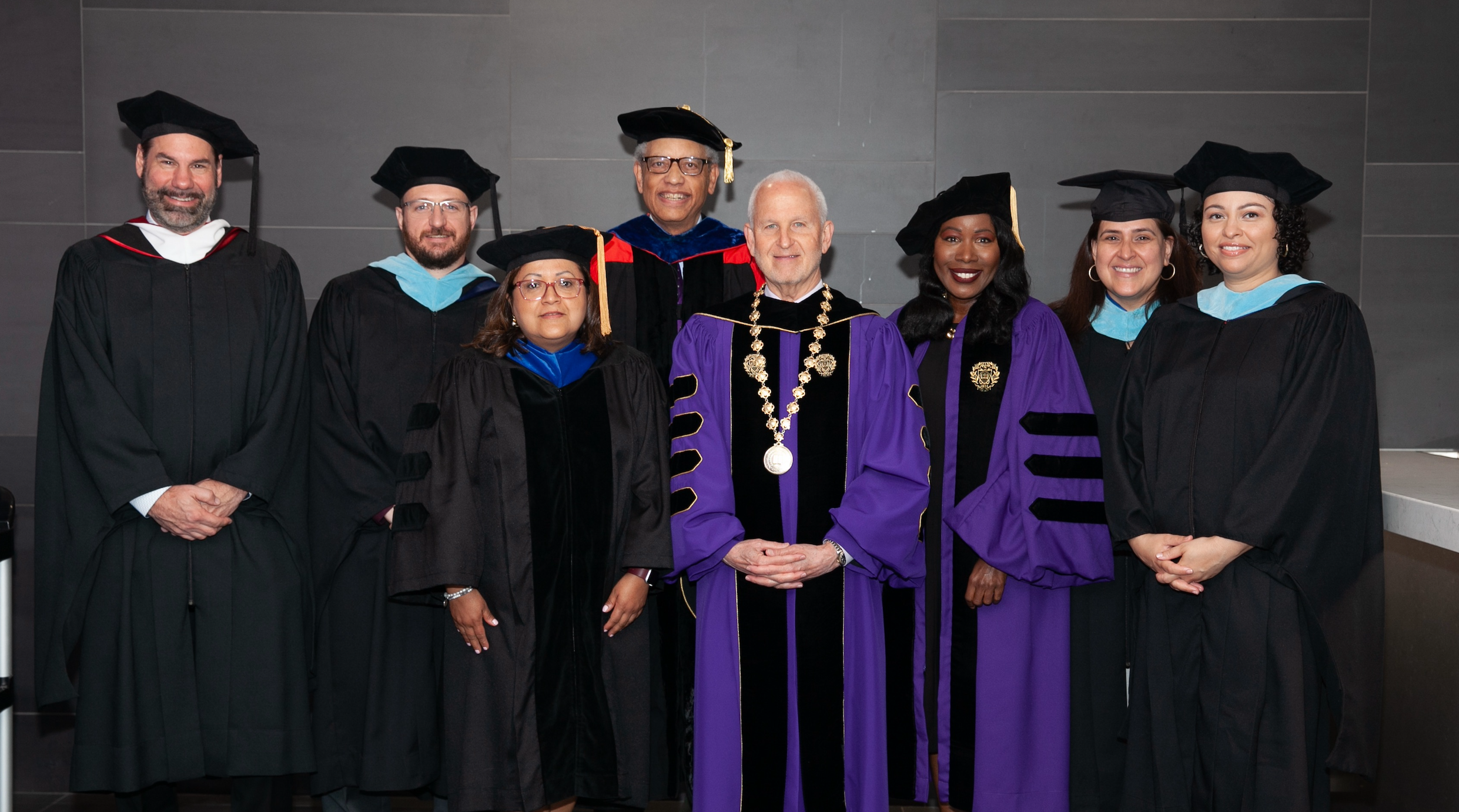
Above: Winners of the 2022 Morton Schapiro Distinguished Secondary School Teacher Award with President Schapiro and Special Assistant to the President Eugene Lowe.
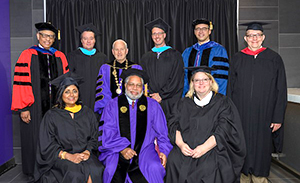
Above: Winners of the 2019 Morton Schapiro Distinguished Secondary School Teacher Award with President Schapiro, Provost Jonathan Holloway, and Special Assistant to the President Eugene Lowe.
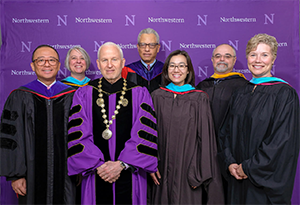
Above: Winners of the 2018 Morton Schapiro Distinguished Secondary School Teacher Award with President Schapiro and Special Assistant to the President Eugene Lowe.
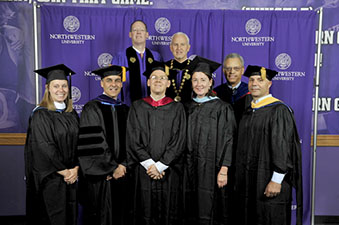
Above: Winners of the 2012 Morton Schapiro Distinguished Secondary School Teacher Award with President Schapiro, Special Assistant to the President Eugene Lowe, and Commencement Speaker Paul Farmer.
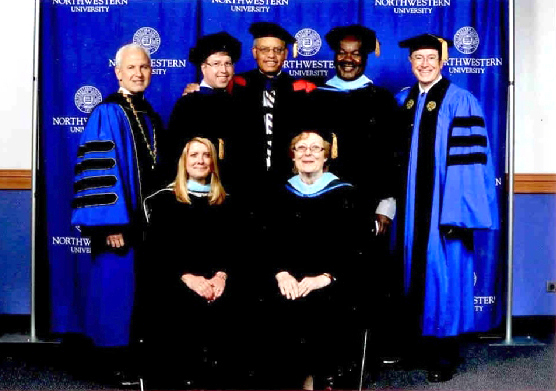
Above: Winners of the 2011 Morton Schapiro Distinguished Secondary School Teacher Award with President Schapiro, Special Assistant to the President Eugene Lowe, and Commencement Speaker Stephen Colbert.
2022
Chris Buckner
Oley Valley High School, Oley, Pennsylvania

Chris Buckner has taught at Oley Valley High School in Oley, Pennsylvania, since 2005. Creator of the school's STEM engineering program and the program's community-based advisory panel, he teaches courses in engineering, computer science, architecture, and design.
Buckner introduced computer numerical control programming into the school's manufacturing curriculum and secured grants for integrating 3-D printers into area K-12 classrooms. He also founded Oley Valley High School's Technology Students Association chapter, which has produced multiple statewide winners and sent three students to the TSA national competition. Through his efforts, the school's engineering program is now a state-approved career technology education program. Student nominator Shannon Lackey of the McCormick School of Engineering and Applied Science is the first student from her high school to attend Northwestern, and she attributes this directly to Buckner, saying that he is "singlehandedly the reason I am the engineer I am today."
Lidia Ortiz
Northside College Preparatory High School, Chicago, Illinois
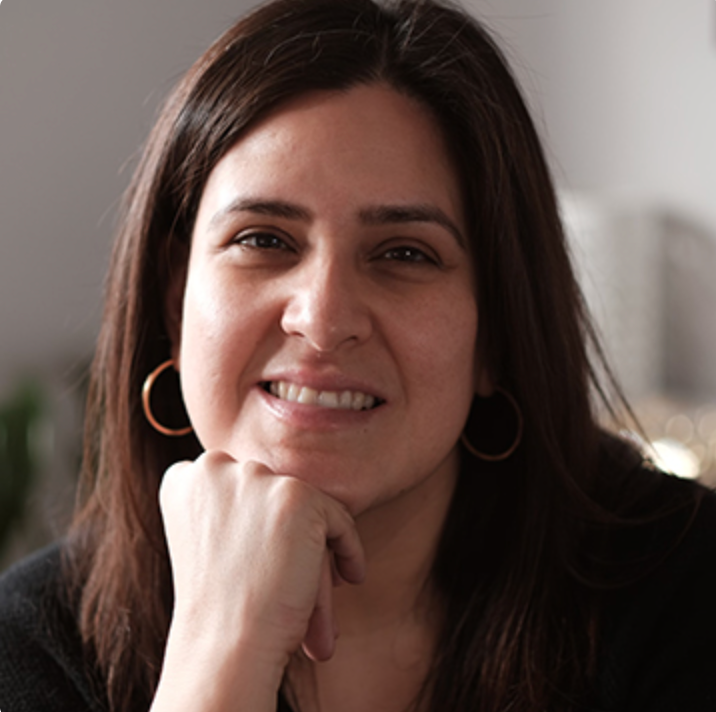
She achieved National Board Certification in 2007 and was recertified in 2016. Student nominator Xanh Quang of the Weinberg College of Arts and Sciences says that none of his subsequent teachers "has quite reached the pure expertise and perfect balance of Lidia Ortiz," adding that Northside College Prep "is very lucky to have her."Ortiz received a BS in biology from the University of Illinois at Urbana-Champaign and an MEd in secondary science from DePaul University.
Shanté Reed
DeLaSalle High School, Minneapolis, Minnesota
Shanté Reed has taught since 2010 on the faculty of DeLaSalle High School in Minneapolis, where she teaches courses in English and creative writing. She has also served as one of the school's racial equity facilitators and as supervising teacher for teacher candidates. In 2015 Reed was the first to teach an introductory African American Studies course as a teaching specialist in the University of Minnesota's College in the Schools program, for which she helped develop and lead that year's summer study abroad program in Brazil. She has furthered her professional development through workshops with the University of Minnesota's African American and African Studies department and College Board workshops on Advanced Placement Language and Composition, a course she taught at DeLaSalle for five years.
Reed won her school's 2011 LaSallian Educator of the Year Award and its 2019 Liemandt Excellence in Teaching Award. Student nominator Karina Karbo-Wright of the Weinberg College of Arts and Sciences says that at DeLaSalle, Reed was "the teacher everyone wanted because she was super cool and really smart,"adding that "her impact is still with me today."Reed earned a BA in African American Studies and English at the University of Minnesota and an MA in teaching at the University of St. Thomas.
David Ross
Madison West High School, Madison, Wisconsin
David Ross has served since 1993 on the social studies faculty at Madison West High School in Madison, Wisconsin, where he has taught and created curriculums for courses in history, philosophy, psychology, and social issues as well as an after-school elective on multicultural society. He has accepted student requests to serve as adviser to eight school clubs, including the Debate Club, the Philosophy Club, and Amnesty International. Previously he taught for four years in Madison West's night-school diploma completion program, and for three summers he taught credit-recovery programs at Madison East High School. From 1999 to 2013 he also served as coordinator for the Social Studies Teacher Education Program in the University of Wisconsin-Madison's curriculum and instruction department.
Ross received the 1991 Second Congressional District Outstanding Teacher Award and has won prior student-nominated Outstanding Teacher Awards from Lawrence University and twice from the University of Chicago. Student nominator Aurora Greane of the McCormick School of Engineering and Applied Science praises Ross as "a dedicated educator even outside the classroom"who vividly demonstrates "the value of excellent pedagogical techniques."Ross earned a BA in history and a Teacher Education Program certificate at UW-Madison.
Nilda Villalta del Valle
National Cathedral School, Washington D.C., Maryland
Nilda Villalta del Valle has taught Spanish courses since 2004 at National Cathedral School in Washington, DC, where she has also chaired the world languages department since 2012.
A 2001 Humanities Rockefeller Fellow at the Smithsonian Institution's Center for Folklife and Cultural Heritage, she subsequently served as project coordinator for its Folklife Festival's Latino music program. Villalta has participated in numerous professional development workshops and has presented papers at national and international conferences. She was the 2013 winner of National Cathedral School's Class of 2004 Teaching Award. Student nominator Emmeline Leggett of the Weinberg College of Arts and Sciences calls her "one of the most genuine, thoughtful, and strong people I have ever encountered,"a teacher who "made her students feel valued, giving special attention to those she noticed needed it the most."
Villalta received a licenciatura in Spanish language and literature and a teaching degree in Spanish literature and grammar from El Salvador's Jesuit Universidad Centroamericana José Simeón Cañas, a BA in speech communication and Spanish and an MA in Spanish language and literature from Louisiana State University, and a PhD in contemporary Latino and Latin American literature and culture from the University of Maryland.
2021
Seth Brady
Naperville Central High School, Naperville, Illinois
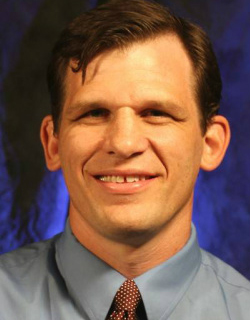 Mahie Gopalka continues to be in touch with Seth Brady as a source of “constant support,” long after leaving Naperville Central. Gopalka, now a senior in the Weinberg College of Arts and Sciences who is preparing for a gap year and ultimately medical school, credits Brady with unlocking her passion for global health.
Mahie Gopalka continues to be in touch with Seth Brady as a source of “constant support,” long after leaving Naperville Central. Gopalka, now a senior in the Weinberg College of Arts and Sciences who is preparing for a gap year and ultimately medical school, credits Brady with unlocking her passion for global health.
“Mr. Brady has touched the lives of so many students — even outside Naperville — through his countless hours developing the Illinois Global Scholar (IGS) program,” Gopalka said. “His passion for global education shaped the way I now understand my own purpose in life.”
The IGS program, signed into Illinois legislation in 2017, allows school districts across the state to offer merit to students who demonstrate global competence through coursework, service learning, global collaboration and a summative capstone project — and the idea for the certificate came from Brady’s classroom.
“Somewhere around 2013, I had a series of epiphanies that stripped the ego out of my teaching, and revealed, to my surprise, the deep and inexhaustible joy found in setting students free,” Brady said. “When students are given the freedom to develop actionable questions, the expected output changes from one of knowledge to one of action. This action orientation in turn drives research that is routed to the student’s own interests. Moreover, the focus on action results in infinitely variable artifacts that are research-driven, creative and authentic.”
Carrie Marcantonio
Winnetonka High School, Kansas City, Missouri
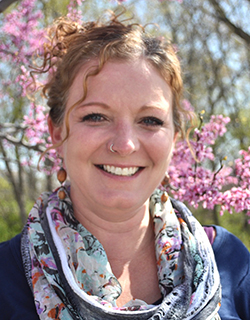 Emanuella Evans remembers spending every lunch period of her freshman year in the classroom of Carrie Marcantonio, where she stored her Nutella and a loaf a bread. The two would eat lunch together. Later, when Evans first joined Winnetonka High School’s Key Club and then took Marcantonio’s research course, she said she felt empowered and learned to value mutual aid, service learning and community care.
Emanuella Evans remembers spending every lunch period of her freshman year in the classroom of Carrie Marcantonio, where she stored her Nutella and a loaf a bread. The two would eat lunch together. Later, when Evans first joined Winnetonka High School’s Key Club and then took Marcantonio’s research course, she said she felt empowered and learned to value mutual aid, service learning and community care.
Evans reflects on the care, empathy and support Marcantonio was able to give to each of her students.
“The crazy thing about explaining how much of an impact Carrie has had on my life is that it’s hard to believe that she had time to do this for any other students, but that’s the reality,” said Evans, a senior in the Medill School of Journalism, Media, Integrated Marketing Communications. “Her qualities touch every student she has in class, in club and even the students that just step into her office for a snack — another reason she’s exceptional! She meets people where they’re at, even if that place is just hungry. I left high school not only prepared for college, but also motivated and excited to change the world — and that’s thanks to Carrie Marcantonio.”
Evans remembers after the 2016 election, Marcantonio’s office was packed with students who knew her space was always open, and she took time to listen to and validate every emotion. As the coordinator of Winnetonka’s two-year capstone program, Marcantonio hears often hears juniors say that “people like me aren’t college material.” As such, she sees her responsibility as one not just of contradicting these beliefs, but of helping students see themselves fulfilling their dreams “in the great wide world.”
“Many of my students see their life experiences as obstacles to academic success, honors classes, college admission and the fulfillment of their aspirations,” Marcantonio said. “My goal is to help them see these things as assets, erasing the narrative that tells them that their English is broken or their writing non-standard, and for them to recognize that their ability to write in Somali, read in Arabic and nail the essay in my upper-level English class is to be commended and celebrated. To that end, the biggest thing that I have learned in my 20+ years as an educator, is that my job is to empower, encourage and then get out of the darn way!”
Monica Rowley
Brooklyn Technical High School, New York City, New York
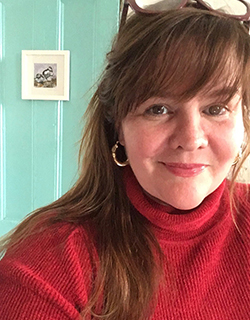 Chloe Wong does not mince words when she refers to Monica Rowley as “the most phenomenal teacher” she has ever met. From freshman-year English and world literature courses to AP Capstone Research that just 13 seniors opted into, Rowley was a major part of Wong’s high school experience.
Chloe Wong does not mince words when she refers to Monica Rowley as “the most phenomenal teacher” she has ever met. From freshman-year English and world literature courses to AP Capstone Research that just 13 seniors opted into, Rowley was a major part of Wong’s high school experience.
“Not only did she continuously convey critical feedback to her students, she also provided educational catalysts that enabled all of her students to exceed their own expectations and succeed in her courses,” said Wong, a senior in Weinberg. “Ms. Rowley created a sense of community in the classroom, a camaraderie that students should inspire each other’s intellectual curiosity by asking questions and diving deeper at every turn. We were held to a high standard in our academic assignments and expected to push the rigor of our arguments because she knew that we were capable of more than we thought. At times, she left us to figure things out on our own and to take ownership over our research processes, yet she was always willing to lend an ear.”
Outside of secondary teaching, Rowley is an accomplished poet. She has received several accolades for her work including a National Endowment for the Humanities Grant, a Library of Congress Grant, and the Roxane McCormick Leighton Foundation Fellowship for study at Bread Loaf. She was also a consultant for the College Board, improving the AP Capstone Research curriculum for students across the country.
“I believe teaching is a political act of the self and for others, and I know education is essential to a functioning democracy,” Rowley reflected. “These statements position me to be in a state of liminality: a place where I am between worlds and must be open to the unexpected (being flexible is the mark of a good teacher), and I must be open to being imperfect. It is in this imperfection that I take on the role of a teacher-learner and researcher. We need troublemakers after all, and I teach — to a large extent — to start, as the late great John Lewis says, ‘good trouble’ and disrupt the power narrative.”
Jeff Solin
Lane Tech College Prep, Chicago, Illinois
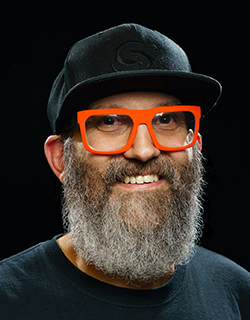 Lazar Gueorguiev first heard about Jeff Solin during his junior year at Lane Tech when older friends taking Solin’s “Innovation Creation Lab” course described the computer science teacher as a “hella chill” guy who played music during class, rode a mini board through the hallways, had smart lights installed throughout the classroom and had a student-painted mural that spanned the walls. When he inevitably took the class himself, it started with designing and printing his own laptop sticker — and ended with the class’s Chicago flag mosaic displayed at Navy Pier.
Lazar Gueorguiev first heard about Jeff Solin during his junior year at Lane Tech when older friends taking Solin’s “Innovation Creation Lab” course described the computer science teacher as a “hella chill” guy who played music during class, rode a mini board through the hallways, had smart lights installed throughout the classroom and had a student-painted mural that spanned the walls. When he inevitably took the class himself, it started with designing and printing his own laptop sticker — and ended with the class’s Chicago flag mosaic displayed at Navy Pier.
“Mr. Solin was acting as a facilitator, giving us the tools, knowledge and guidance we would need to complete the project and leaving everything else to the students,” said Gueorguiev, a senior in the McCormick School of Engineering and Applied Sciences. “This freedom is something I’d never experienced before in a classroom setting, and it had an incredible effect on the students. Some of my friends, who didn’t historically have the greatest work ethic, were deeply invested in their projects and had great pride in their work because they created it.”
Solin incorporates the community into his classroom through partnerships with organizations including Argonne National Labs, SAIC, Northwestern, the Chicago Cubs, the Museum of Science and Industry and the National Science Foundation.
“My job as an educator is to help students experience, understand, use, build and change technology so that they can solve the problems they care the most about, and eventually solve problems that don’t even exist yet,” Solin said. “At Lane Tech, most of our students are disadvantaged and underrepresented, sometimes by their gender, sometimes by the color of their skin, sometimes by their family’s resources, sometimes by their documentation status — and usually by a combination of those reasons.
“This is the case for most of the students across the district. The challenges to overcome are not insignificant, but my colleagues and I are committed to continue to advocate, support, learn from, and find CS education resources and opportunities to equitably serve ALL students of the Chicago Public Schools.”
Mark Vondracek
Evanston Township High School, Evanston, Illinois
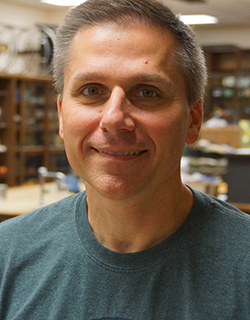 Noah DeMar credits his decision to study mechanical engineering at Northwestern “in no small part” to his AP physics teacher, Mark Vondracek. DeMar said it was widely known that the teacher slept only a few hours a night — instead preparing lessons that went “far beyond the required curriculum.”
Noah DeMar credits his decision to study mechanical engineering at Northwestern “in no small part” to his AP physics teacher, Mark Vondracek. DeMar said it was widely known that the teacher slept only a few hours a night — instead preparing lessons that went “far beyond the required curriculum.”
“Dr. Vondracek, or ‘Doc V’ as we called him, taught me much more than AP physics; he gave his students the foundation to succeed anywhere they went after graduation,” said DeMar, a McCormick senior. “In many ways, Doc V's AP physics classroom felt like a Northwestern classroom transported to the third floor of my high school. More than just an academic, Doc V truly cared about the success of his students. His classroom was smattered with paraphernalia from various universities. Often Doc V would provide guidance where the school guidance counselors fell short.”
Though Vondracek has received dozens of local, state, national and global awards for his teaching, he said his most treasured accomplishment as a teacher is that in 26 years as an educator, he’s never written a detention or had to send a student to the dean’s office — even when he’s worked with gang-affiliated students or individuals with criminal backgrounds.
“Students know they will walk into my room (or now, into the virtual Zoom classroom) and be respected and loved by the teacher,” Vondracek said. “They know they’re expected to follow the only rule I’ve ever had, the Golden Rule, with every one of their peers in class. We all agree to create a safe and trusting home away from home where they can forget about the real and often serious problems outside our space and in their daily lives. A classroom being a temporary safe haven is a breath of fresh air for many students, and they can drop the need to be someone who they’re not and instead have fun learning and growing — and learning physics of all things, that stereotypical ‘impossible’ subject they’ve been told is only for the ‘smart’ kids.
“What a great job we teachers have!” Vondracek added.
2020
Joseph Brysiewicz
Highland Park High School, Highland Park, Illinois
School of Education and Social Policy senior Jack Benjamin calls his high school teacher Joseph Brysiewicz a “personal hero.” Drawn to his lively and fast-paced European history lectures, Benjamin said “Bryz,” as he’s affectionately called by students, “has an encyclopedic knowledge of world history and current events alike.”
“He always had an answer for every question,” Benjamin said, “and his passion for history, art and culture was contagious.”
Brysiewicz says developing students’ gifts and nurturing their passion for learning require a teacher to move beyond favorite theories and instructional strategies.
“I still believe that making mistakes and taking risks are the hallmark of a joyful classroom and lay the foundation of culturally responsive instruction,” he said.
For Benjamin, Brysiewicz left him academically curious along with some parting words he’d never forget.
“On the final day of my senior year, he imparted his sagest wisdom,” Benjamin recalled.
“‘Your life doesn’t begin after high school, or after college, or after you get a job. It began as soon as you were born, and every day counts, so make the most of it.’”
John DeRose
Whitefish Bay High School, Whitefish Bay, Wisconsin
Weinberg College of Arts and Sciences senior Carter Rothman credits his high school AP history teacher for teaching him the critical thinking skills he’d need to succeed at Northwestern.
“As a political science major, developing theses, defending them and making connections across sources of information and time periods are skills that I use every time I take a midterm or final,” Rothman said. “Whenever I complete one, I think of Dr. DeRose and the experience that I gained from being in his classroom.”
DeRose realizes that while few of his students may go on to major in history, he understands how critical it is to train students to think like historians.
“Having students who have had a wide range of interests in studying history when they first entered my classroom tell me how much their time spent with me improved their critical thinking, writing and decision-making skills, particularly at the university level, has been gratifying,” DeRose said.
For Rothman, DeRose’s personal and professional excellence both stand out.
“While I am always appreciative of excellent educators, Dr. DeRose is truly distinguishable because of the compassion and friendliness that he conveys to his students,” Rothman said.
Maria Hiaasen
Dulaney High School, Timonium, Maryland
Sumin Woo described herself as a quiet 15-year-old who loved writing but didn’t know what to do with that interest — until she had Maria Hiaasen as a high school English teacher and student newspaper advisor.
“Mrs. Hiaasen cultivated my love of the English language both as an art and a medium to share news,” said Woo, a senior at the Medill School of Journalism, Media, Integrated Marketing Communications. “She pushed us as writers, but also as human beings, because she knew we could work harder, write better and create something we could truly be proud of.”
Hiaasen acknowledges her AP English course workload is rigorous and strives to be aware of the stressors students face today.
“I do believe that responding with empathy to students is fundamental to teaching — especially in this age when teenagers report higher levels of anxiety than ever,” Hiaasen said.
Looking back, Woo appreciates that Hiaasen stood up for her reporters when administrators complained about stories students were writing or questions they were asking.
“She was the one who taught us how to dig,” Woo said. “To me, Mrs. Hiaasen exemplifies persistence and the value of developing a strong work ethic.”
Kristen Kirschner
Episcopal School of Baton Rouge, Baton Rouge, Louisiana
Medill senior Gabrielle Bienasz remembers English teacher Kristen Kirschner as an incredible teacher and mentor who inspired a lifelong love for American literature. When they weren’t discussing “The Great Gatsby” or “Raisin in the Sun,” Bienasz and her friends often still gathered in Kirschner’s classroom for extracurricular activities.
Kirschner’s classroom has become known as a “safe space” for students to gather during their free periods. She says her classroom is a space where everyone belongs.
“Each year, I am amazed by the great fortune I have of only knowing about 20 percent of what my job will be,” Kirschner said. “In my 12 years as a secondary educator, my students have led me to coach debate, host poetry slams, sponsor improv comedy shows and more. The only certainty is that the unknown variables will be more thrilling than I could ever plan for.”
Bienasz said Kirschner helped shape her as a writer.
“I asked Mrs. Kirschner to look over one of my pieces,” Bienasz recalled. “She handed back this page full of red ink, and after taking her suggestions, I thought, ‘Wait, there’s a real poem in there.’ Subsequently, I found there was a poet in me, too.”
Diana Niemann
South Mecklenburg High School, Charlotte, North Carolina
As a high school junior interested in STEM, Kristen Barnes learned the value of a mentor. As a racial and gender minority, Barnes said having a mentor — and someone she could relate to — was a defining factor in her decision to pursue engineering.
For the McCormick School of Engineering senior, AP science teacher Diana Niemann was that person.
“Mrs. Niemann recognized the potential in my quiet and shy junior-year personality,” Barnes said. “She saw my interest in STEM and introduced me to relevant classes, science and math summer programs, and engineering scholarships.”
Even today Barnes finds comfort in Niemann’s words and past lessons to get her through challenging times.
Niemann can relate. Growing up, she herself was one of those students labeled “at risk,” but a teacher saw her academic potential.
“I believe we are all born with a talent, but we aren’t all presented with opportunities to help us reach our potential,” Niemann said. “The No. 1 factor that drives my teaching is ensuring my students have every opportunity to be successful, no matter what they determine ‘success’ to be.”
2019
Jeff Berger-White
Deerfield High School, Deerfield, Illinois
Emma Meyerhoff engaged in conversations about inequality for the first time in her high school English class and credits her teacher for bringing discussions of race and identity into her life.
“My high school was extremely homogenous, and I had very little interaction with people of color in my town,” said Meyerhoff, a senior in Northwestern’s School of Education and Social Policy. “Mr. Berger-White introduced poems and novels into our curriculum so that we could read works by authors of color. He did not shy away from the hard conversations but showed me that it is okay to lean into my discomfort and have conversations that challenge me.”
English teacher Jeff Berger-White said that teaching writers like James Baldwin, Danez Smith, Eula Biss and Claudia Rankine has been essential in opening up these conversations. He believes that learning is often a messy, complicated human process that depends on a lot more than metrics.
“The long-lasting impacts of a course matter as much as anything, and is something that cannot be easily measured,” he said. “I want my students’ minds to be alive with the language of literature and ideas. They must see themselves as engines that power the classroom.”
Every day he reads a poem to all his classes, not for analysis, but for enjoyment and consideration.
“His poem choices helped guide me through our course and many of them stuck with me beyond high school,” Meyerhoff said. “I will forever be grateful for his dedication to helping shape the minds of young adults.”
Sherry Brooks
Central Academy, Des Moines, Iowa
Ariana Moore recalls being very shy growing up and being terrified to share her observations and analyses in school -- until she entered Sherry Brooks’ high school English class.
“She forced people to collaborate and interact with the text,” said Moore, a senior in Northwestern’s Weinberg College of Arts and Sciences. “She fostered a great love of literature even in the student who much preferred to be in chem lab.”
Moore said Brooks pushed students to their intellectual limits.
“I had just started to break out of my shell. I was raising my hand in class to share critical analysis, even if I hadn’t rehearsed the exact words I was going to say 10 times over in my head,” she said.
Brooks often wondered whether she was going about teaching the right way and acknowledges that her teaching approach over the years has evolved because of her own life experiences. She said she now feels the need to be very open with her students.
“Once they see me as a person who struggles and questions and doesn’t know everything, they are willing to work with me to find their own answers and learn it is okay to struggle and question and not know everything,” Brooks said. “I think the best way to be a good teacher is to struggle along with your students, whether with the curriculum or with yourself.”
Sherry Brooks
Central Academy, Des Moines, Iowa
Ariana Moore recalls being very shy growing up and being terrified to share her observations and analyses in school -- until she entered Sherry Brooks’ high school English class.
“She forced people to collaborate and interact with the text,” said Moore, a senior in Northwestern’s Weinberg College of Arts and Sciences. “She fostered a great love of literature even in the student who much preferred to be in chem lab.”
Moore said Brooks pushed students to their intellectual limits.
“I had just started to break out of my shell. I was raising my hand in class to share critical analysis, even if I hadn’t rehearsed the exact words I was going to say 10 times over in my head,” she said.
Brooks often wondered whether she was going about teaching the right way and acknowledges that her teaching approach over the years has evolved because of her own life experiences. She said she now feels the need to be very open with her students.
“Once they see me as a person who struggles and questions and doesn’t know everything, they are willing to work with me to find their own answers and learn it is okay to struggle and question and not know everything,” Brooks said. “I think the best way to be a good teacher is to struggle along with your students, whether with the curriculum or with yourself.”
Ruth Moonesinghe
South Pasadena High School, South Pasadena, California
Ruth Moonesinghe’s teaching record: More than 95 percent of her students get a 5 on the AP Calculus AB and BC exams.
“She is constantly challenging her students to excel,” said Joanna Wan, a Weinberg senior. “Her teaching record exemplifies her effort.”
“Mathematics is only a vehicle that mirrors the challenges of life,” Moonesinghe said. “By beginning with a set of constraints, one must use the principles that are proven to be true, to make something make sense to find an answer. We go to class every day, the kids and I, and we work on solving problems. Metaphorically, this is what makes the numbers come to life.”
Moonesinghe’s students have nicknames for her — "Ruthless" for her high expectations and "Mamasinghe" for her caring devotion.
In addition to being an excellent educator, Wan said Moonesinghe engages in charity efforts and is devoted to alumni engagement — organizing an event that provides an opportunity for recent alumni and high school graduates to meet current high school students.
Moonesinghe’s goal is to have her students develop a mindset that will push them every day — especially after they leave her class.
“I think of my students as young workers, five years down the road, working on a project at their workplace,” she said. “When they are given certain constraints, they must analyze the situation, use all the resources that are available to them, work with their team, and then use their knowledge to complete the project in the most efficient way. This is who they will become.”
Robert Shurtz
Hawken School, Gates Mills, Ohio
For Robert Gray, the Science, Technology, Engineering, Mathematics and Medicine (STEMM) program at his high school prompted his interest in electrical engineering — a path he’s now pursuing at Northwestern’s McCormick School of Engineering. The teacher who led that program — and taught him in math and physics — Robert Shurtz, influenced him greatly.
“He has a clear mastery of the material he teaches, which allows him to give students an intuitive understanding of the problems they are solving,” Gray said. “Beyond that, he has many great quirky sayings and lab demonstrations, which he utilizes to make learning the fundamentals much easier. This gave me a strong baseline understanding of physics and math, which I have built upon in college.”
Shurtz, who also has been coaching the debate team at Hawken for 34 years, said one of the most important things his students have taught him is that they love being challenged.
“My demanding style is accompanied by a high level of support,” Shurtz said. “Students can reach me with questions via phone, text or email virtually any time any day. I encourage students when they are struggling a bit, and I cajole them when they are slacking.”
Gray said Shurtz’s support extended outside the classroom as well, attending many students’ extracurricular events to cheer them on.
“Mr. Shurtz helped to expose me to the world of research and real-world problem solving for the first time,” Gray said. “I can say with certainty that I would not be the student or person that I am today without the influence of Mr. Shurtz.”
Matthew Whipple ’88
Glenbrook South High School, Glenview, Illinois
Weinberg senior Avi Dravid recognizes his social studies teacher Matthew Whipple for pushing him and his fellow classmates to think outside their “parochial worldviews and adopt a more global perspective.”
“Mr. Whipple encouraged students to learn all they could about the world and become educated global citizens with a strong sense of empathy and keen analytical skills,” Dravid said.
Dravid describes a class assignment in which students were assigned a country and tasked with writing related weekly reports.
“This gave me a much greater awareness of what was happening in the world and the role the United States plays in shaping world events,” he said.
Whipple said he approaches education with two goals in mind — helping students self-actualize and globalize.
“My purpose in the classroom is to syncretize these two goals and find ways to share the power of this thinking with all students,” he said. “It is my responsibility to prepare students to enter the world with the tools they need to find their own success.”
Dravid said Whipple, also a Northwestern alumnus, has continued to be a valuable mentor to him, putting him in touch with Northwestern professors who shared his same academic interests.
As for Whipple, he said it’s been his great fortune to be a teacher.
“While much has changed in my field, at the core remain the relationships I have established and the goals I have shared with students.”
2018
Katherine Konyar
Wheeling High School, Wheeling, Illinois
For Taran Lichtenberger, high school honors biology was the first class where she began to understand science as a field of research and investigation. The curiosity the class sparked for her was in large part due to her teacher Katherine Konyar.
“Mrs. Konyar found a way to integrate a real-world research experience into the classroom,” said Lichtenberger, a senior in Northwestern’s Weinberg College of Arts and Sciences.
She recalls her class conducting a research project on the value of biomarkers and later presenting to other schools and representatives at Abbott Laboratories.
“This was my first exposure to scientific research, and I am pursuing a career in research because of that experience,” Lichtenberger said.
A teacher for more than 30 years, Konyar said her biology class is a conduit for helping students grow.
“My job is to help students to discover who they are and not who I or their parents want them to be,” Konyar said. “I am there to cheer students on, to pick them up when they fall and to encourage them to try again without giving up.”
In addition to teaching every day, Konyar works with the iBIO Institute EDUCATE Center’s Stellar Girls program, exposing girls in her community to science at an early age.
“Mrs. Konyar’s work inside and outside the classroom demonstrates not only her excellent teaching ability, but her desire to encourage learning,” Lichtenberger said. “Her efforts make her sincerely deserving of Northwestern’s Distinguished Secondary Teaching Award.”
John Kretsos
Niles North High School, Skokie, Illinois
Emily Moy has fond memories of her honors chemistry teacher dancing around the class as students sang the song he made up to help them learn about the ionic charges on the periodic table. Sometimes the song still gets stuck in her head. She still applies the basics taught by her teacher John Kretsos to the STEM courses she takes today.
Kretsos coached Moy’s Science Olympiad team and helped her build a skill set beyond chemistry, giving her a strong foundation for her current engineering studies. He was always supportive and caring.
“He was always more than happy to stay after Science Olympiad practice to discuss everything from life beyond high school to his rock band to talking me out of getting a bad tattoo,” said Moy, a senior at Northwestern’s McCormick School of Engineering. “Even as I faced adversity in college, he was there for me.”
Kretsos said teaching has been an ideal combination of his love for science and human interaction.
“I have always seen the personal relationships between my students and me as the most important factor in maximizing their learning academically and their growth as young people struggling to find their voice and their place in the world,” Kretsos said. “I am deeply humbled to be considered for this recognition — more for the profession than for myself and most because it comes from students with whom I have been so fortunate to work.”
Mark Liu
Metea Valley High School, Aurora, Illinois
It’s been a few years since Drew Bronson’s high school orchestra days, but he still plays his violin regularly. Once a self-proclaimed “hater of orchestral music,” Bronson said the influence of his teacher Mark Liu encouraged him to keep music a part of his life forever.
In fact, Bronson, a senior at Northwestern’s McCormick School, said music makes him a more creative engineer.
“Throughout my time at Northwestern, music has been my solace, my companion and my joy,” Bronson said. “Mr. Liu is responsible for almost all of it.”
Liu, who received his master’s degree in music from Northwestern’s Bienen School of Music in 2006, said teachers must not only believe strongly in what they teach, but even more strongly in the people they teach.
“Each student comes to our charge with his or her own story and unimaginable potential,” Liu said. “With patience, passion and persistence, we can help them blossom and unleash that potential.”
As a ringer for the Trans-Siberian Orchestra and armed with a Ph.D. in music education, Liu could teach at the college level or pursue a full-time career in music performance, Bronson said.
Liu said his students often ask him why he enjoys teaching so much.
“My answer to them is always, ‘How cool is it that I get to work with future educators, doctors, engineers, scientists, CEO, artists and Nobel Prize winners.’”
As educators, Liu added, “We are in the business of possibility.”
Natalie Sekicky
Shaker Heights High School, Shaker Heights, Ohio
Shane McKeon, a senior at Northwestern’s Medill School of Journalism, recalls his high school journalism instructor telling his class on the first day of “Journalism 101” to “Grab a pencil and some paper. Go out into the halls, and don’t come back until you’ve found five stories.”
“That’s basically what I do now,” McKeon said. “It’s what I want to do for the rest of my days.”
McKeon appreciates Natalie Sekicky’s dedication to teaching and remembers how she, along with the principal’s help, would scrape money together to send the “Shakerite” high school newspaper staff to journalism conventions where, over the years, they came back with many awards.
It’s important for Sekicky to instill in her journalism students that they must use their great powers for good. One has already gone on to win two Pulitzer Prizes for reporting.
“They must be challenged to take strong stances when others would prefer they stop paying attention,” Sekicky said. “And they must trust that their teacher will stand up for them when they do so.”
McKeon, who calls Sekicky the “finest high school journalism teacher in the country,” said she taught him to not only write clearly, but to think clearly.
“She was the rare adult in my life who never bought the fiction that righteous anger is a sign of immaturity,” McKeon said. “Natalie Sekicky never asked for thanks or recognition, but now, I’m going to insist upon it.”
Esther Wu
Mountain View High School, Mountain View, California
Whether reading Shakespeare’s “King Lear” or Toni Morrison’s “Song of Solomon,” Allison Mark said her AP literature teacher pushed her to think deeper, teaching her skills to engage with and analyze literature.
Mark, a senior in Northwestern’s McCormick School of Engineering, said her teacher Esther Wu possessed “a boundless reserve of energy and passion that instilled as much dread and anxiety as it did admiration and inspiration.”
“Papers were handed back just days later, inked over with insights and constructive criticism, and college application essay readings outside of class were scheduled every week in the fall semester,” Mark said. Furthermore, she remembers Wu returning soon after the birth of her second child for some last-minute AP exam coaching and preparation.
Wu said it’s her job to create the conditions necessary for all students to learn to the best of their ability every day.
“Whenever I find myself buried beneath piles of papers to grade or stuck on how to improve a lesson, I stop and remember my students,” Wu said. “They inspire me to continually refine curriculum, instruction and assessments. They remind me that teaching is a craft rooted in relationships, which brings great joy.”
Wu’s high standards and unshakeable faith in her students taught them to only expect the best in themselves, Mark said.
“Ms. Wu, the superwoman that she is, truly cared for us and found time to knit us closer together as a class,” Mark said.
2017
Dana DesJardins
Niles West High School, Skokie, Illinois
Weinberg College of Arts and Sciences senior Barbara Gawin said English teacher Dana DesJardins goes above and beyond in her role as an educator.
“Throughout the year, she frequently met with all her students to check in with them,” Gawin said. “On the last day of class, she handed out poems that she had found and specifically chosen for each of us. Mine was so beautiful and such an accurate description of me that I almost cried."
DesJardins has been a public school teacher for 26 years. She said even after interacting with thousands of students over the years, they still surprise her.
“They still remind me it is imperative to be open and flexible, to read the emotional weather in the room and adapt accordingly,” she said.
DesJardins said an effective teacher “has a deep knowledge of the subject area, an abiding optimism and immense patience.”
Sanlida Cheng, director of humanities at Niles West, would also add thoughtful and considerate to that list of qualities — particularly as it pertains to DesJardins.
Cheng said DesJardins recently offered to teach a section of junior English as a favor to a colleague.
“Going into her final year before retirement, Dana could have asked to teach whatever she wanted, but she decided to help her colleague instead,” Cheng said. “Dana now teaches this course, differentiating the curriculum to meet the needs of very needy students and making systemic recommendations. I would give anything for a department full of Dana DesJardins, but I know there is only one.”
Andrea Geyling-Moore
Milton Academy, Milton, Massachusetts
Arielle Ticho said history teacher Andrea Geyling-Moore taught her to look at the world through a critical social justice-oriented lens, inspiring the School of Education and Social Policy senior to commit to a career in urban teaching.
[She] “made sure to make the topics we read about and discussed in class come alive through inviting speakers to class and having us interact with the world beyond the classroom walls,” Ticho said.
When Geyling-Moore first started teaching, she began with an international focus. However, she said teaching and living have taught her the importance of also focusing locally.
“Indeed, investing oneself locally can have significant connections with national and global issues, as I try to help my students realize, and as my students’ own stories often exemplify,” Geyling-Moore said.
Geyling-Moore, who has taught at Milton Academy since 1992, has developed a social justice course in which students explore issues of human rights, living wage, environmental justice, food insecurity and more. She requires students to make a weekly commitment to a service site off campus.
“I remain steadfast in my professional goal and personal hope: to prepare my students to be engaged in a world — locally and globally — that needs, more than ever, caring, motivated, skilled, knowledgeable citizens.”
Vivian Wu Wong, chair of the history and social sciences department at Milton Academy, said Geyling-Moore’s class indeed has had an impact on her former students.
“As we continue to hear from our alumni, these experiences were incredibly meaningful and continue to shape their outlook on the world today,” Wong said.
David Masunaga ’79
‘Iolani School, Honolulu, Hawaii
Weinberg College of Arts and Sciences senior Nicholas Yim was inspired by his high school math teacher to apply to Northwestern — a somewhat difficult decision, particularly when moving, as Yim described, from “a place full of gleaming white sand and turquoise waters.”
But Yim’s math teacher David Masunaga, a 1979 graduate of Northwestern, inspired Yim and his two brothers, now also Northwestern graduates, to pursue diverse educational learning experiences far from Hawaii.
“Mr. Masunaga cared more about his students’ learning than about their grades,” Yim said. “His classes allowed students to visualize different mathematical concepts with demonstrations and to directly experiment with mathematical theories.”
Furthermore, Yim said Masunaga believed students should show concern and do for others. Paying it forward, Yim has tutored students in several science courses at Northwestern and has served as a basketball coach for fourth-graders at an Evanston community center.
Masunaga said he has a “dogged and undying belief in the potential of young people.”
“Some subjects are inherently challenging, and no gimmicks can make them easy,” Masunaga said. “However, anything is possible when deeply committed teachers believe in their students and help them engage with the material.”
Aster Chin, the upper school dean at ‘Iolani School, said Masunaga is one of the most revered members of their faculty.
“At every alumni event, I always hear stories of how much they learned from ‘Mr. Mas’ and when asked which teacher has impacted them most, the answer is most often a resounding ‘Mr. Mas.’”
Patrick Pearson
Oak Park and River Forest High School, Oak Park, Illinois
Ben Weiss, a senior at the School of Education and Social Policy, said he likely would have quit high school orchestra after his freshman year if it hadn’t been for his music teacher, Patrick Pearson.
“With Mr. Pearson at the helm of my high school orchestra class, I came ready and excited to practice and play every day,” Weiss said. “You worked hard in class because you truly didn’t want to disappoint him or let him down. He always carried a huge smile on his face, regardless of circumstance.”
Pearson, who has been teaching for more than 25 years, said teaching is part of his fiber. As a result, he said, “I rarely have to psych myself up for teaching or become nervous for teaching.”
One piece of advice Pearson offers to other teachers is, “Be yourself.”
“I think this trait is what sets me apart from many of my colleagues,” he said. “Because I am a music ensemble teacher/conductor/director, I have the unique luxury of having my students for four years. During those four years, I have the opportunity to really get to know the students, and they really get to know me.”
Allan Dennis, founder and president of the Midwest Young Artists Conservatory, said it’s hard to think of anyone more deserving than Pearson for this honor.
“His commitment to his students, as a role model and because of his commitment to youth, especially to providing opportunities for youth who might not have the support system that other students might, make him a most logical choice for this wonderful award,” he said.
Raymond Salazar
John Hancock College Prep High School, Chicago
To Osbeyda Navarrete there is one high school teacher in particular who stands out and remains a constant source of support and motivation.
English teacher Raymond Salazar challenged and pushed his students to continue to do their best, Navarrete said.
“One of the things that I really appreciated about him was that he didn’t accept our excuses when trying to turn in late or incomplete assignments,” said Navarrete, a senior in the School of Education and Social Policy. “This really helped me be prepared for college and work hard on every single assignment.”
Since graduating from high school, Navarette has from time to time consulted with his former mentor to discuss matters such as career options.
“Mr. Salazar is the type of teacher that doesn’t forget about students once they are no longer in his class…he is the type of teacher that becomes a mentor afterwards.”
Salazar said so much of his work is helping students realize the strength they already possess, but he also recognizes they are not invincible.
“The election results make us see a new vicious reality that many of students will have to confront,” Salazar said. “This is why part of my work — besides teaching writing — also has to include helping students prepare to confront — but not tolerate — the ugly realities of trying to lead a better life.”
Karen Boran, principal of John Hancock College Prep High School, said all of Salazar’s achievements in the classroom still do not cover his impact.
“He pushes kids to think deeper, to work harder and to become their best possible selves,” she said.
2016
Daniel Conti
Weinberg College of Arts and Sciences senior Ryan Kenney said English teacher Daniel Conti tirelessly guides and supports his students until they have the confidence and capability to meet his expectations.
“By prioritizing learning over achievement and by imparting his passion for learning and teaching at every opportunity, Mr. Conti demonstrates his exceptional ability to foster a love of learning among all of his students,” Kenney said.
Conti, who has taught English at Lincoln-Sudbury Regional High School in Sudbury, Massachusetts, since 1994, said early on in his teaching career he learned that teaching wasn’t about him, it was about the students -- after which he said many more lessons have followed.
“First: teaching is an act of faith,” Conti said. “We spend an incalculable amount of time and energy on our students, and, yet, we may never see the fruits of our labors. We trust that our students will be better students, better citizens, better people for having been in our classrooms.”
Conti is “a true servant leader to his students,” Kenney said.
“I had many friends in Mr. Conti’s classes who weren’t exceptionally drawn to English as a subject, but who nonetheless matured as students and gained remarkable confidence in themselves and their abilities by simply being a student in Mr. Conti’s class,” he said.
Eleanor Burke, housemaster at Lincoln-Sudbury Regional High School, has supervised Conti’s teaching for seven years and said he is a teacher who literally opens students’ worldview.
“Every time I watch Dan’s class, I see small miracles,” Burke said. “We all leave the room feeling something is right with the world."
Linda Ford
Chemistry teacher Linda Ford said the greatest compliment to her teaching is the overheard remark as the bell rings, “What? Class is over already!”
“It tells me that I have orchestrated a communal learning experience that caused time to fly by,” said Ford who teaches chemistry and AP chemistry, as well as an elective environmental science class for juniors and seniors, at The Seven Hills School in Cincinnati.
Ford’s passion for teaching and joy for learning is contagious and evident to her students, said McCormick School of Engineering and Applied Science senior Katherine Cirulli, citing how Ford has transformed the way she thinks about and solves problems, both inside and outside of the classroom.
“Her curriculum and teaching style well prepared me for the exams and problem sets I have completed throughout my time at Northwestern,” Cirulli said. “These critical thinking skills have been the backbone of the way I learn and study at Northwestern.”
Ford would demonstrate a new chemistry experiment using music and costumes to enhance teaching about chemical concepts they were learning in class, which was especially helpful to Cirulli, who calls herself a “visual learner.”
Ford said that’s by design.
“I use music, special lighting, costumes, props and poetry to connect all of their senses to chemistry,” she said.
But props aside, her courses are known to be so challenging that students adjust their course loads around them, said Susan S. Marrs, assistant head of school at Seven Hills.
“Linda gives only her best every single day, and that’s what she expects -- and gets -- from her students as well,” Marrs said. “Linda is a teacher kids remember and appreciate all their lives.”
Ben Hartnell
Weinberg senior Emma Feder fondly recalls Ben Hartnell, her history teacher at Westerville North High School running through the hallway screaming, “Freedom!” at the top of his lungs while wielding a fake sword and dressed in William Wallace attire a la “Braveheart.”
“Dr. Hartnell’s uniforms are a staple of his classroom experience,” Feder said. “He frequently teaches in full costume to help bring history to life for his students.”
Hartnell, who has been teaching for 15 years, said students need to “buy in” to what you’re essentially “selling” them.
“Everything I do, create and wear, I do for my students in my never-ending pursuit of making history feel real,” he said. “I literally try to bring history to life on a daily basis!”
Hartnell also is known for his blue book exams.
“Although daunting at first, Dr. Hartnell’s blue book whipped my writing and study skills into shape at a time in my life when I was determining what type of student I wished to become,” Feder said.
“His course shaped me not only as a student but also as a person, and I do not believe that I would have developed the same skills and self-motivation had I not spent that time in his classroom,” she said.
Students should always be the focus of teaching, Hartnell stressed. His hands-on approach to teaching -- using costumes, reenactments or protests -- benefits all types of students regardless of their unique abilities, he said.
“This produces students that are excited about education and creates a wonderful atmosphere not only in Room #135, but around the high school and community,” Hartnell said.
Barbara Kane
McCormick senior Rene Romo said his high school calculus teacher Barbara Kane managed to get an entire class excited about a subject and to strive for the same goal.
Kane’s ability to motivate her students led to a high of more than 75 percent of AP Calculus students at Morton East High School in Cicero, Illinois, passing the AP exam in 2013, which is 15 percent higher than the national average. That is especially noteworthy considering the school regularly falls below state standards in math.
Romo said what differentiates Kane from other teachers is the amount of work she’s willing to put in to ensure her students have all the resources they need. She provides tutoring and homework help every day before and after school and even comes in on Saturday in order to have students complete AP practice exams.
“Many students come into the classroom disinterested or thinking they have no chance of passing the exam, and before long they are doing everything they can to pass it,” Romo said. “And they enjoy doing it.”
A math teacher at Morton East since 1998, Kane said along the way she has developed techniques to demonstrate multiple ways to solve a problem and to identify the better or easier approaches. She’s also come to realize that the goal of teaching is not entirely about math.
“It’s truly about empowering the person,” Kane said. “Teaching is about getting each individual student to develop their own goals in the classroom that translate into goals in life, while getting the entire class to work together as a unit to achieve them.”
Jose Romo
For most of her life, Weinberg senior Thelma Godslaw grew up within a three-block radius of Lawndale, Hawthorne and Inglewood, California. She was content with the parameters of her immediate neighborhood -- that is until she set foot in Jose Romo’s Spanish class.
“I had never seen the beach, until I ran there with my two feet on our training routes,” recalls Godslaw, referring to her experience with “Students Run L.A.,” an organization that gives at-risk students the opportunity to prepare for running a marathon, which was coached by Romo.
Romo, who teaches Spanish and AP Spanish literature at Leuzinger High School in Lawndale, went above and beyond to expose his students to the Latin culture through books, dance, music, art, plays and much more.
In addition to coaching “Students Run L.A., he organized the annual Cinco de Mayo celebration and advised the Movimiento Estudiantil Chicana/o de Aztlan chapter at Leuzinger, showing Godslaw and other students how to stand up to injustice.
Inside Romo’s classroom, Godslaw not only learned to speak, read and write Spanish, she also fell in love with the culture of her Latina and Latino peers.
“This was no small feat,” Godslaw said. “My high school was not well funded, so the measures he took to expose us were personally funded, and his hours extended well into the weekend and weekday nights.”
Romo strongly believes the true test of his teaching is not when students do well on an assessment, but when they go out into the real world and put into practice what is most appropriate.
“Students sharing their life experiences, showing compassion for others, standing up for what they believe, these are the joys of teaching,” Romo said. “An invitation from a former student who is graduating from a university, even if it’s on the East Coast, brings me more joy than all my students passing a state mandated exam.”
2015
Elizabeth Bennett
At Illinois’ Buffalo Grove High School, orchestra teacher Elizabeth Bennett has earned the nickname “Mom” as a term of endearment. Weinberg College of Arts and Sciences nominator Samantha Bulmash, who nominated Bennett for the award, said, “She has become ‘Mom’ to hundreds of students. It takes an exceptional type of person to earn such an affectionate nickname from ‘angsty’ teenagers, and she earned it without even realizing it.” A teacher at Buffalo Grove for nearly seven years, Bennett was the recipient of the 2008 Illinois Emerging Teacher Leader Award and the 2014 recipient of the University of Chicago’s Educator of the Year Award. Bulmash said Bennett manages to achieve that perfect balance between education and pleasure, strictness and friendliness, precision and creativity. “Everything about Mrs. Bennett demonstrates her love for music: her speech, her stories, her behavior, even her clothing -- she is extremely proud of her ‘Bach socks,’” Bulmash said. “She implemented an orchestra service hour requirement so that we can give back to our community and bring the joy of music to younger students or other community members.” Bennett embraces the “Mom” nickname -- especially now. “After becoming a ‘real’ mom, I’ve learned that this craft of teaching is very special and a gift not to be taken for granted,” Bennett said. “Each day there are parents who entrust their children to me, to mold their young minds and help them discover the world around them and how to not only survive in it, but thrive.” Bennett earned her bachelor’s degree from Northwestern and her master’s degree from Concordia University in Wisconsin.
Donald Bott
Wesley Kirpach
Valerie Schrag
Sameer Shah
School of Education and Social Policy senior Samantha Paige Yi begged her high school counselor to allow her to take an extra English class her senior year. However, she needed four years of math to apply for early decision at Northwestern. Yi said she can still remember the first day she walked into her calculus class at Packer Collegiate Institute in Brooklyn, New York, and was greeted by the most enthusiastic teacher she had ever encountered -- Sameer Shah. “What really got me was when he talked about how beautiful calculus could be,” Yi said. “Mr. Shah never hesitated to point out the overlap between subjects -- math and music, science and English.” Shah said that friends and colleagues say he’s “unnaturally obsessed with teaching.” “For me, it’s a badge of honor,” Shah said, adding that at the heart of it all, he holds his students to a high standard. “I always meet them where they’re at -- altering my curricula based on the understandings I see -- but I make sure they lead me to deep mathematical understandings, rather than the other way around,” he said. Bruce Dennis, head of school at Packer, says the depth of Shah’s intellect led the school to take a chance on the then first-year teacher -- something they rarely do. “As a reward for our risk-taking, Sam has affirmed the wisdom of our decision to hire him each and every day over the past eight years,” Dennis said. Shah earned his bachelor’s degree from the Massachusetts Institute of Technology and his master’s degree from University of California, Los Angeles.
2014
Howard Hill
Catherine Irving
David Knight
Mattie Olsen
2013
Phillip Baker
Christopher Esposito
Kelly O'Keefe-Boettcher
David Quinn
Julianne Schrick
2012
Greg Devine
Greg Devine is an Advanced Placement (AP) physics teacher at Delbarton School in Morristown, N.J., who also serves as an advisor to the Engineering and Design Club and director of the school’s wind and brass ensembles. He was nominated by McCormick School of Engineering and Applied Science senior Luke Francis Hemenetz. “Greg Devine sparks a passion for learning in his students and his students respond in kind,” says Delbarton School Headmaster Brother Paul Diveny of the physics teacher. “With a true passion for teaching and self-renewal, Greg is a life-long learner himself, and this is what he models to his students.”
